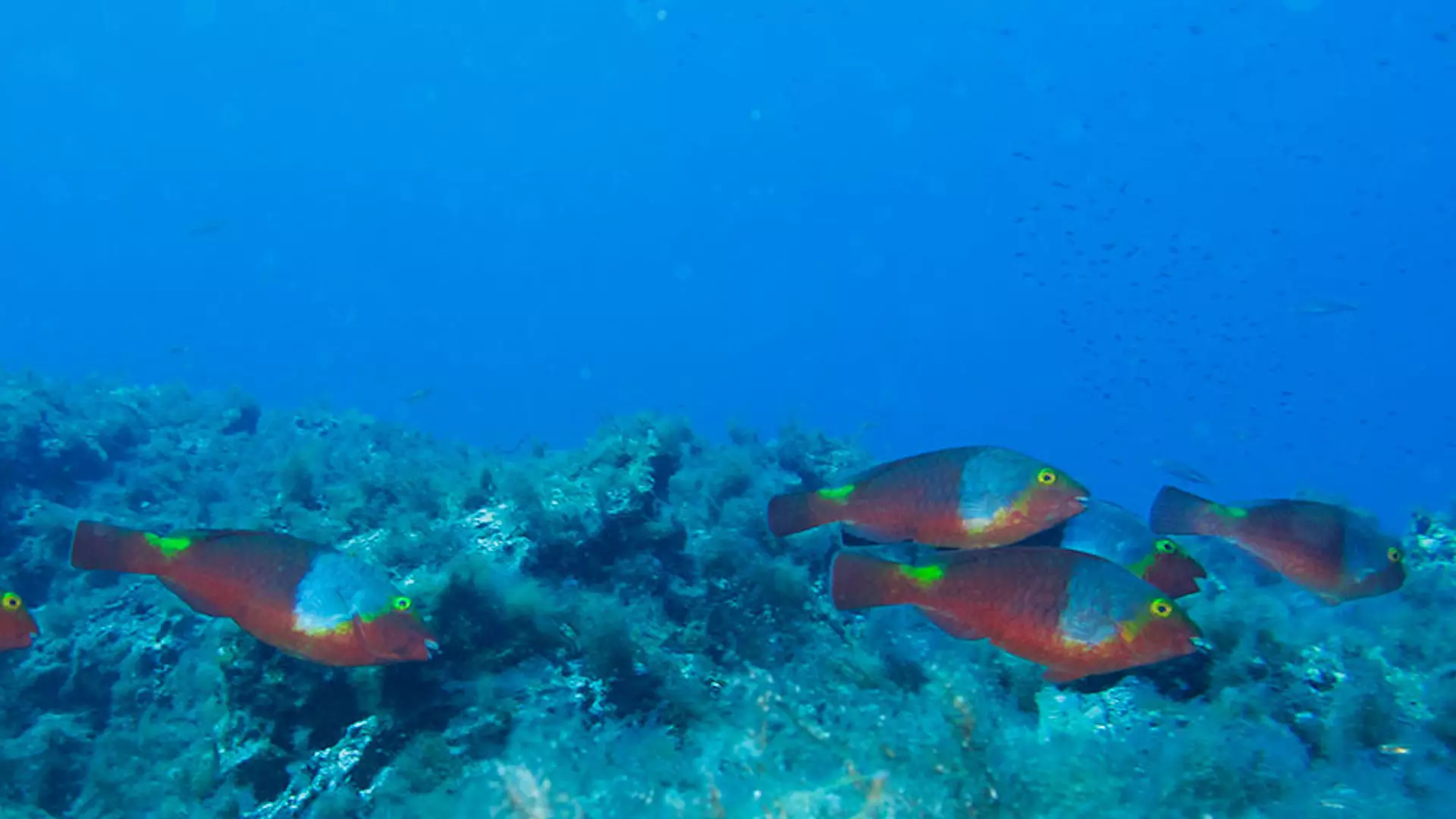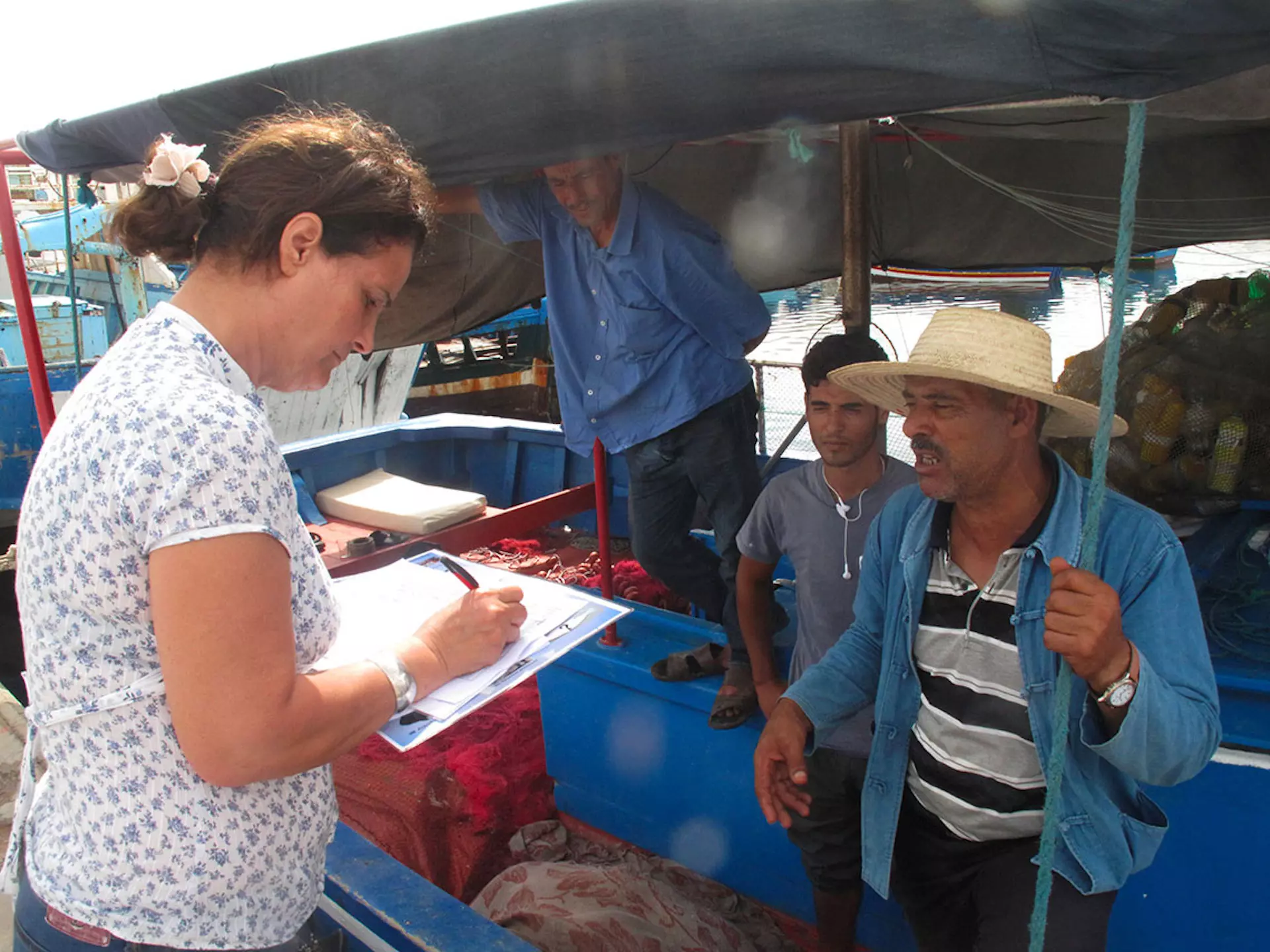https://www.lifegate.it/mediterraneo-pesci-sentinella
- |
- The first open access database providing information on 15 fish species considered "sentinel" of climate change in the Mediterranean has been inaugurated.
- The Mediterranean Sea is an important hotspot for monitoring the health of marine biodiversity and is also the sea that is warming the fastest due to global warming.
Is called ClimateFish and it is the first open access database, therefore open to all, which provides information on the presence in the Mediterranean Sea of 15 species of fish considered as "sentinels" of climate change.

What is meant by "sentinel" species
With approx 700 fish species and a warming rate about three times faster than that of the ocean, the Mediterranean is a hot-spot of biodiversity and climate change.The database includes seven native species (including brown grouper, parrotfish and golden trevally), selected for their wide distribution, sensitivity to temperature conditions and easy identification, and eight exotic species from the Red Sea ( including flute fish, dark rabbit fish and scorpion fish).
In recent decades several species have moved towards the poles increasing the risk of extinction, while the arrival of new exotic herbivorous species such as the rabbitfish is causing the phenomenon of marine desertification.Furthermore, several species have expanded their geographical distribution in the Mediterranean:it is a phenomenon, referred to as southernization, which involves several native fish species, such as the Mediterranean parrotfish and the damsel pavonina, identified towards the north of their original geographical distribution.
It was then detected the phenomenon of tropicalization, i.e. the presence of non-native fish of tropical origin which is expected to become increasingly present in the Mediterranean as a result of global warming (in 2002 there were 90, of which 59 from the Red Sea, while in 2020 the exotic species reached 188 of which 106 coming from the Suez Canal, for a total of 76 stable species).
Over 100 thousand specimens registered in 13 years
“Thanks to underwater sampling, over 100 thousand specimens of the 15 target species have been recorded over the course of 13 years, in over 3 thousand areas of seven countries in the Mediterranean basin”, explains Federica Pannacciulli, head of the Enea Laboratory of biodiversity and ecosystem services.
At the moment, exotic species are still underrepresented in the database and their presence is concentrated mostly in the eastern sector of the Mediterranean where the warming phenomenon is particularly accelerated, such as the area south of Crete (+1.65 degrees centigrade).“But their number is destined to grow in the coming years due to the increase in temperature caused by climate change,” adds Pannacciulli.
The research, published on Frontiers, was created by the marine biologist Ernesto Azzurro of the Institute for Biological Resources and Marine Biotechnology of the Cnr, in collaboration with experts from the Enea Research Center of Santa Teresa, La Spezia, and other international institutes.

The Mediterranean Sea is warming faster than other seas
In addition to the underwater censuses conducted for ClimateFish, to understand the changes in the marine ecology of the Mediterranean, the international team of researchers interviewed in 95 locations in nine different European countries over 500 fishermen, aged between 28 and 87, with more than 10 years of individual experience and over 15 thousand years of total sea observation.
Respondents were asked to mention the species that has increased in abundance or perceived as new, i.e. never observed before, in their fishing grounds.Overall, respondents mainly indicated 75 species, both native and exotic, adapted to the heat.Two-thirds of the non-native species detected were spotted pufferfish and flutefish.Among the native species most expanding towards the north are the bluefish and the Mediterranean barracuda.
Developed extensively, the method has made it possible to simply and effectively monitor some of the effects of ongoing global warming on the coastal ecosystems of the Mediterranean:in 2021 they were recorded the highest ocean temperatures of history and the Mediterranean is the sea that is warming the fastest.Monitoring it is essential for developing climate change adaptation and mitigation strategies.
